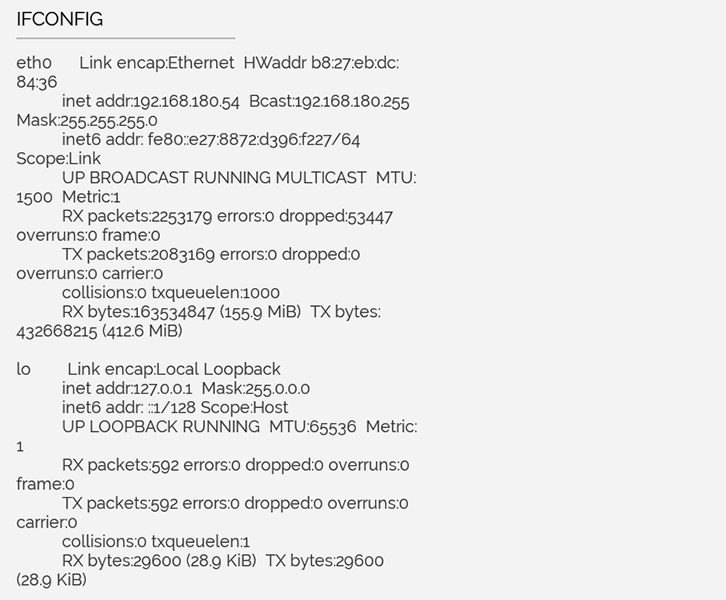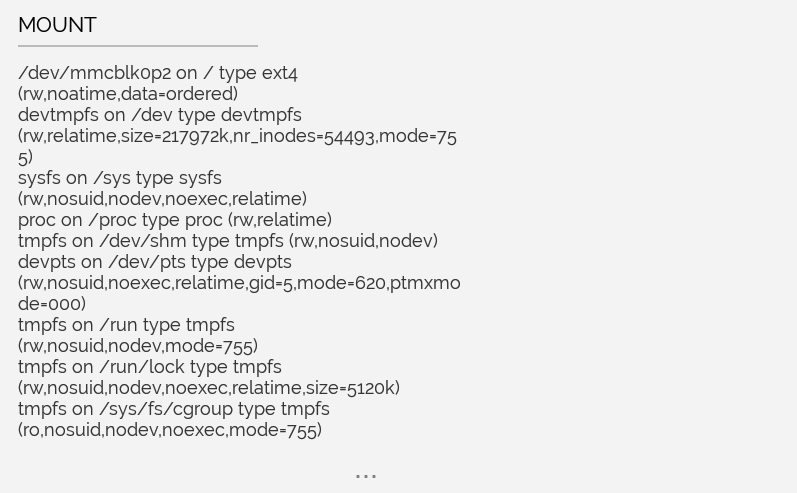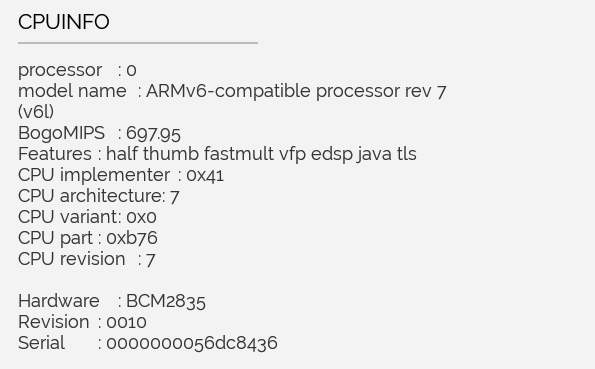Advanced
The Advanced Diagnostics tab provides much deeper information about your device configuration, including:
- The full output of ifconfig
- DNS resolver configuration
- Mount points
- The output of /proc/cpuinfo
Ifconfig
This is a more detailed view of the same information available in the "Local IP address" section of the Networking tab. The output here varies by system but will typically include a list of interfaces, link state, network addresses, network masks and interface statistics.

Ifconfig
DNS resolver configuration
This section is the output of /etc/resolv.conf, and typically includes the nameservers you have configured on your device.
A nameserver is used to translate domain strings such as dataplicity.com into the computerised IP addresses which Linux will use, and are typically provided by your upstream router automatically via DHCP.

Resolver
Mount points
Lists all the mountpoints on your device, including both filesystem mounts, virtual filesystems such as /proc and tmpfs (ramdisk) mounts such as /tmp.
Details listed will vary by filesystem type but usually include the path where the file system is mounted, its type, size, whether it's readable/writable, and filesystem configuration.
There's a lot of information here. However just knowing whether a filesystem is mounted correctly and/or is mounted read/write or read-only could help you to identify unexpected behaviour when modifying files on your device.

Mount
Output of /proc/cpuinfo
Cpuinfo enumerates very detailed information about the type of processor(s) in the device. It is a kernel-generated virtual file which lives in /proc.
Although the output would vary by processor and by OS, you'll usually find a section each processor a list of the processor features and details of the manufacturer and part variant.

CPU Info
Updated 9 months ago
